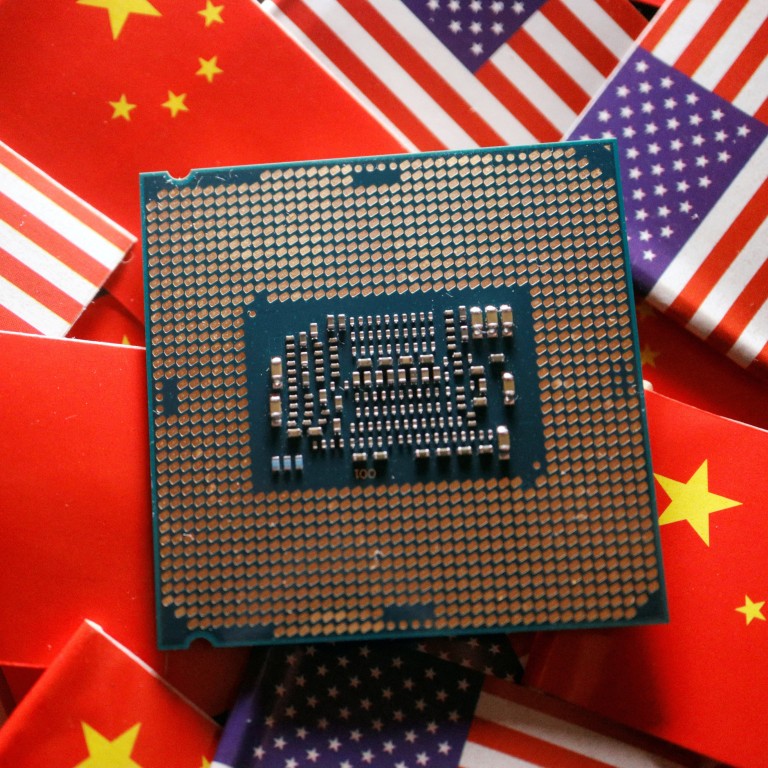
‘Two sessions’ 2024: China’s top advisory body told AI gap with US is widening
- Head of major state-owned chip maker says his firm has ‘long way’ to go to catch up with American AI companies
- Amid US tech curbs, CPPCC members told China will fall further behind if no decisive measures are taken
During a sideline meeting on Tuesday in Beijing at the Chinese People’s Political Consultative Conference (CPPCC) – the country’s top political advisory body – Zeng Yi, a delegate who heads the Shenzhen-based China Electronics Corporation, said his firm has a “long way” to go to catch up with the United States.
“Objectively speaking, despite the great efforts we have been making, our difference [with the US] is still huge,” Zeng told the gathering of a few dozen representatives of the science and technology community.
As China pursues ‘new productive forces’, economic bubbles must be avoided: Xi
At the annual “two sessions” meetings, Beijing has continued to highlight self-reliance in science and technology as the key to transforming the Chinese economy at a time when development is under pressure from increasing US technology curbs. But Zeng, who said the work his company is doing is “at the forefront of China-US science and technology competition”, said the country is still falling behind.
“In a certain sense, as new developments in AI emerge exponentially, if no decisive and groundbreaking measures are taken, we are at risk of seeing an even wider gap,” he said.
“Problems in the development of information technology cannot be solved by creating applicable scenarios, nor through breakthroughs in specific technologies … it is not even a problem about talent and basic research,” Zeng said.
“It is about many things from all aspects, we are all very anxious.”
China at a crossroads ahead of Two Sessions 2020 - SCMP Series
Zeng leads a company that develops national cyber and information security technology, chip research and design, semiconductor equipment, advanced manufacturing processes, and operating systems.
Now, both state-owned and private companies are under pressure to ramp up the country’s domestic technology development.
While China’s AI industry was generally seen as more competitive in the varied tech rivalry between the two countries, the latest launch of OpenAI’s Sora and ChatGPT has raised questions about China’s progress in catching up with the US.
Risks ahead but China’s economy to stay on long-term, tech-led course
To cope, Chinese tech companies, which have insisted that chip restrictions would not affect AI their development in the short term, have relied on their existing inventories, or have turned to domestic AI chip makers.
But after Sora was launched last month, the State Council’s State-owned Assets Supervision and Administration Commission, which manages companies like Zeng’s, urged firms under direct control of the central government to “embrace the profound changes brought about by AI”.
In terms of global computing power, including intelligent computing power from AI chips, China ranks second at 33 per cent after the US at 34 per cent, and ahead of Europe and Japan, at 17 per cent and 4 per cent respectively, according to the China Academy of Information and Communications Technology.
As China’s economy undergoes ‘structural upgrade’, tech becomes a top priority


